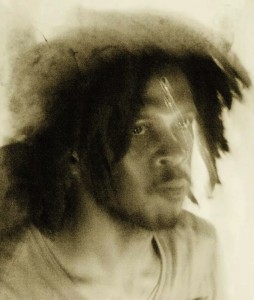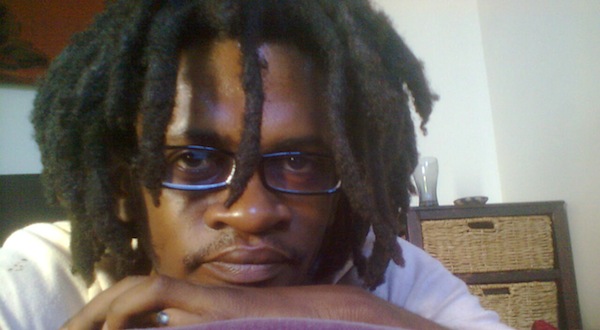MPHUTLANE WA BOFELO in conversation with Khaya Maseko, anarchist and “chaos magickian”.
I produce and proliferate knowledge. I hope that the work of producing and conducting creativity, truth and rights, preservation of life and self-governance, will make a difference. The difference is actions. It is changed mind states. It is more mindful people, wakeful creative active citizens, people that don’t need to hold an election to change their policy, because they, as autonomous citizens, are the policymakers. I hope to increase access to the truth.
– Khaya Maseko
Khaya Maseko is a voice you will hear at most spaces and platforms where resistance to all forms of tyranny and the expression of human resilience is articulated through various mediums, be it poetry, music, dance, blogging or protest marches. This manager of an anarchist blog aptly called CHAOTIC FRONT does not need weapons and mediums to spread the chaos against oppressive systems as he is himself a weapon of struggle and a medium of consciousness-raising.
KM: My main weapon is my life. It is the fact that I am. The mind of this person called Khaya functions to preserve life, increase peaceful actions and intellectual freedom. I use every medium to do my work. Books, poems, live performance, teaching, and the internet. At the moment I run a blog called The Chaotic Front where I meld all the four media of my life and spread the knowledge. There is a world of things going on and some people are too busy being misinformed to ever shape authentic opinions. This blog is a gateway to remedying that. Besides blogging, resistance poetry is of high importance. An inarticulate anarchist is likely to not be taken seriously. Language is a tool. Tools can be weapons.
Unflinching and proudly wearing the moniker of being the ungovernable one, Khaya believes there is a relationship between close-mindedness and tyrannical tendencies and between open-mindedness, critical consciousness and liberatory practices. He therefore subscribes to tapping into diverse worldviews and practices in his struggle against all forms of oppression and to fusing various mediums of expression, while eschewing formalisation and institutionalization.

Khaya attributes his stubborn rebellion against the establishment to the training he had received as a child “to read well, understand clearly and then do somethingâ€. Ironically, he also accredits the bit of tertiary education he received for the broadening of his mind.
KM: It’s there for all of us to see. We know what truth and lies are. We know what justice and injustice look like. So when I studied political science in 2005, I noticed that the intellectuals of the world know what is going on. They manufactured, wrote and ironed out the laws and tenets of society. I responded by revolting. I could not accept banks because I knew economics. Being from KwaMashu, I know that life is terrible and cheap when you lack the resources to govern your own future. I could not vote because I had been politically aware since childhood. I barely chose anarchy. It was not something that beguiled me as a distraction and reaction to the world. It seemed necessary. Bad governance needs resistance, man. I’m glad to know that others are there, too.
While insisting that the manifestoes are dangerous because they are too rigid, Khaya presents his brief manifesto as follows:
ANARCHIST’S MANIFESTO
Anarchy is self-governance. In this light, we the anarchists, choose to:
- govern ourselves,
- control our own resources,
- authentically own our land,
- not vote,
- fight foreign interventions,
- promote the values of truth, peace and justice.









